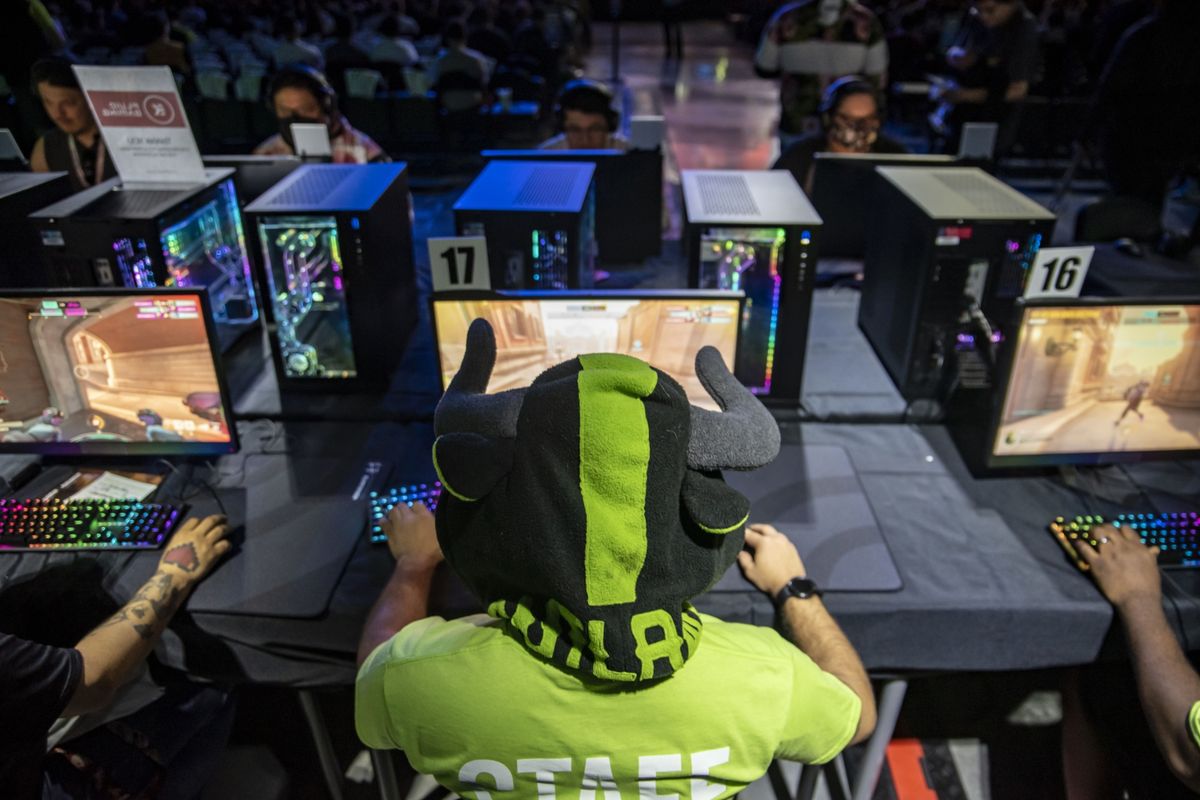E.U. breaks with Britain and U.S. to clear Microsoft’s Activision deal

The European Union on Monday cleared Microsoft’s $69 billion purchase of the gaming company Activision Blizzard, a rare victory for the companies embroiled in a global battle to close one of the largest acquisitions in the history of the tech industry after blows from regulators in the United States and Britain.
Microsoft, the maker of the popular Xbox gaming console, agreed to concessions to gain the green light from the European Commission, which has traditionally taken an aggressive stance toward U.S. tech mergers and acquisitions. Under the agreement with the European Union, Microsoft will license popular Activision games, including Call of Duty and World of Warcraft, free to other cloud streaming providers.
The European Commission said in a Monday news release that these concessions “fully address” concerns that the deal would give the tech giant an unfair leg up in the nascent cloud gaming market, which allows players to stream games to their computers or consoles.
Microsoft announced its plans to buy the popular game maker as regulators around the world promised a tougher stance against the growing power of a handful of tech companies. Microsoft has vowed to fight moves from the Federal Trade Commission in the United States and Britain’s competition regulator to block the deal.
The challenges signal a broader effort among regulators to prevent tech companies from gobbling up smaller competitors to neutralize competition in fledgling markets. Though cloud gaming is a small part of the video game industry, it is expected to grow exponentially as internet connections, data centers and technical capabilities improve.
Britain’s Competition and Markets Authority said in a tweet that it “stands by its decision,” warning that cloud gaming needs to “continue as a free, competitive market.”
“Microsoft’s proposals, accepted by the European Commission today, would allow Microsoft to set the terms and conditions for this market for the next 10 years,” the regulator said.
The European Commission’s decision could bolster the companies’ attempts to appeal the CMA and FTC’s efforts to block the deal, though such efforts face tough odds in the United Kingdom, where courts have rarely overturned such decisions.
Microsoft faces a better outlook in the United States, where courts have held a relatively narrow interpretation of competition law and rejected similar arguments, including the FTC’s lawsuit alleging Meta’s purchase of Within would stifle competition in the nascent virtual reality market. An administrative law judge will hold an August hearing about the FTC’s lawsuit to block the deal. The FTC declined to comment.
Both Microsoft and Activision celebrated the EU’s green light. Microsoft’s president Brad Smith said the concessions the company made to the bloc “will empower millions of consumers worldwide to play these games on any device they choose.”
After business leaders warned Britain’s decision to block the deal could stifle innovation in the country, Activision chief executive Bobby Kotick said the company’s EU teams would “grow and prosper given their governments’ firm but pragmatic approach to gaming.”
The EU’s divergence from other regulators sends a mixed signal to businesses attempting to navigate an environment where antitrust regulators have promised a more aggressive posture.
Harry First, a professor at the NYU School of Law, said competition would be better served by keeping Microsoft and Activision as competitors in gaming, rather than allowing them to consolidate and then trying to constrain how they operate.
“The biggest policy issue is, are you going to let these huge companies get huger by merger?” he said. As long as Microsoft can continue to do so by offering deals, he added, it sends the signal to other giants that they answer is “yes.”
First said compared to the British CMA, the European Commission “is less concerned about allowing mergers and more willing to believe a settlement will actually fix things.”
A preliminary investigation by the Commission found that the Activision deal could harm competition in both video game distribution and the supply of computer operating systems. But a more in-depth investigation by the group found evidence that addressed some of those fears, including that Microsoft had little incentive to withhold popular games like Call of Duty from Xbox rivals like Sony’s PlayStation.
The Commission said this agreement could help bolster the relatively nascent field of cloud gaming.
“Ultimately, the commitments will unlock significant benefits for competition and consumers, by bringing Activision’s games to new platforms, including smaller EU players, and to more devices than before,” the Commission said in its news release.
The FTC’s lawsuit takes a different approach, arguing the deal would give Microsoft the ability to thwart competitors by withholding games from competing game systems entirely, or by manipulating pricing and degrading game quality on rival consoles. The FTC also concluded the deal could have negative effects on cloud gaming, potentially squashing innovation in the new market.
The CMA found that Microsoft already accounts for about 60-70% of global cloud gaming services in the swiftly growing market, and the deal could further entrench the company’s power. The British regulator warned that cloud gaming provides critical benefits to consumers, as it allows them to play games from any device rather than being tied to expensive consoles.
Regulators’ concern over cloud gaming puzzled analysts across the video games industry. Cloud gaming is not a primary strategy for any of the big console platforms, and consumers only see its value as a supplementary way to play video games.
Unlike streaming services like Netflix, video games require faster, sturdier internet infrastructure to limit the lag between a keystroke and seeing a reaction on screen. The Washington Post reviewed Google’s failed Stadia project in 2019, which saw several seconds of delay of button-to-screen action. Fast-paced action games like the Call of Duty series are far from ideal as cloud gaming products, since it requires small input latency to be enjoyed.